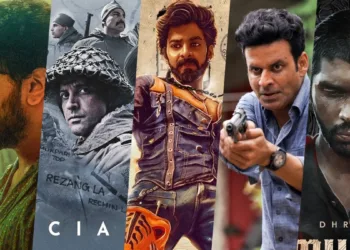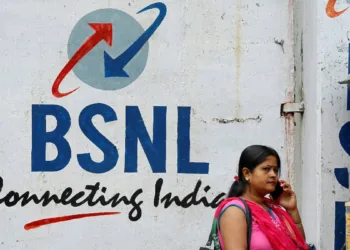Imagine if Demon Slayer had chosen Muichiro Tokito as its main character instead of Tanjiro Kamado. The story would transform from a tale of hope and determination into one of the most heartbreaking narratives in anime history. While many Demon Slayers have tragic pasts, the most tragic origin of all may belong to the Mist Hashira, and placing him at the center would fundamentally change the series’ emotional core.
Table of Contents
Demon Slayer Muichiro’s Devastating Backstory: A Foundation of Tragedy
Born to a woodcutter and his wife, Muichiro Tokito and his twin brother, Yuichiro, experienced the loss of their parents at the age of ten. When they were ten years old, their mother caught a cold which developed into bronchitis, eventually killing her. Their father, who had gone to fetch medicinal herbs for their mother during a storm, ended up falling off a cliff and dying.

Comparative Tragedy Analysis
| Protagonist | Family Loss | Age at Trauma | Memory Impact | Emotional State |
|---|---|---|---|---|
| Tanjiro Kamado | Lost family to demons | 15 years old | Retains all memories | Hopeful, determined |
| Muichiro Tokito | Lost parents naturally, brother to demons | 10-11 years old | Memory loss from trauma | Detached, emotionless |
| Hypothetical Muichiro Story | Complete isolation | Childhood | Fragmented identity | Devastating loneliness |
The Memory Loss Factor: A Unique Tragic Element
What makes Muichiro’s potential protagonist journey uniquely devastating is his memory loss. Seeing his brother slowly passing away he loses his memories and leaves to join the Demon Slayer Corps. After watching his brother be brutally killed Muichiro lost his memory’s causing him to forget about his family.
Unlike Tanjiro, who fights to protect his remaining family and honor his deceased loved ones, a protagonist Muichiro would battle demons while struggling to remember why he’s fighting at all. This internal conflict would create a profoundly melancholic narrative where the hero questions his own identity and purpose throughout the journey.
The Kokushibo Connection: A Darker Destiny
The most devastating aspect of a Muichiro-centered story lies in his bloodline connection to Upper Moon One, Kokushibo. Due to his past, Kagaya Ubuyashiki already knew that Muichiro was related to Kokushibo, and hence chose him as a Hashira- the child of prophecy. Instead of Tanjiro as intended originally by Gotouge, Muichiro would survive the fight but become a demon.
This potential storyline would see our protagonist ultimately becoming what he swore to destroy, creating a tragic irony that would make viewers question whether heroism and sacrifice are truly worth the cost.
Character Development Through Isolation
Yet, beneath his stoic demeanor lies a heart shrouded in tragedy, a past marked by loss, survival, and an unwavering determination to protect the innocent. This trauma has left him somewhat emotionally detached, but he remains fiercely loyal to his comrades.
A Muichiro-led narrative would explore themes of:
Emotional Numbness: Unlike Tanjiro’s empathy-driven approach, Muichiro’s detachment would create a colder, more analytical protagonist who struggles to connect with others.
Identity Crisis: The memory loss would force viewers to watch the protagonist slowly piece together his past while questioning his present actions.
Survivor’s Guilt: The weight of being the sole survivor of his family would add layers of psychological complexity rarely seen in shonen protagonists.

Why This Alternative Would Be More Heartbreaking
Tanjiro’s story, while tragic, maintains hope through his unwavering optimism and the survival of Nezuko. A Muichiro-centered tale would lack these emotional anchors. Instead, we’d follow a protagonist who:
- Cannot remember his loved ones clearly
- Fights without understanding his own motivations
- Faces the possibility of becoming a demon himself
- Experiences profound loneliness despite being surrounded by comrades
For more analysis on tragic anime protagonists and their impact on storytelling, check out our comprehensive anime character analysis guide.
The Mist Breathing Symbolism
Muichiro’s Mist Breathing technique would take on deeper symbolic meaning as the series’ central power. The mist represents his clouded memories, unclear identity, and the haze between his human and potentially demonic nature. This metaphorical layer would add poetic tragedy to every battle scene.
Fan Reception and Cultural Impact
His backstory, marked by tragedy and loss, adds depth to his character, making him relatable yet admirable. Many fans express their affection through fan art and discussions, highlighting how Muichiro’s narrative captures their hearts.
The emotional resonance of Muichiro’s character already demonstrates how powerfully his story affects audiences. Amplifying this to protagonist level would create an anime that challenges viewers emotionally while exploring themes of memory, identity, and the true cost of heroism.
For more insights into Demon Slayer’s character development and storytelling techniques, explore our detailed Demon Slayer series analysis.
Discover more thought-provoking anime analyses and character studies on the official Demon Slayer website and dive deeper into the series’ complex themes and character development.
Frequently Asked Questions
Q: Would Muichiro as the protagonist change the overall tone of Demon Slayer significantly?
A: Absolutely. While Tanjiro’s story maintains hope through his determination and Nezuko’s survival, Muichiro’s journey would be fundamentally darker. His memory loss, emotional detachment, and tragic backstory would shift the series from an uplifting tale of perseverance to a melancholic exploration of identity and loss. The series would likely focus more on psychological trauma and the cost of survival rather than the power of human bonds and family love.
Q: How would Muichiro’s relationship with other characters differ from Tanjiro’s approach?
A: Muichiro’s emotional detachment and memory issues would create vastly different dynamics. Unlike Tanjiro, who forms deep bonds through empathy and shared experiences, Muichiro would struggle to connect meaningfully with others. His relationships would be more transactional and duty-bound rather than emotionally driven. This would make character development moments more impactful when they do occur, but also create a sense of isolation that would permeate the entire narrative, making every friendship feel more precious and fragile.








